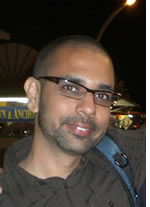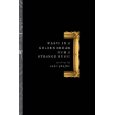
Asher Ghaffar is an award-winning writer and scholar who has taught courses in the social sciences and humanities for over a decade. He served as the Coordinator of the Writing Centre at the University of Calgary and later joined the University of Saskatchewan as a full-time faculty member of Rhetorical Communication and Principal Investigator at the Ron and Jane Graham School of Professional Development. Asher recently served as a Specialist in the Centre for Excellence in Learning and Teaching at Toronto Metropolitan University (TMU) and a Lecturer at OCADU. He currently teaches full-time at TMU in the Ted Rogers School of Management. In addition to serving as the editor for History, Imperialism, Critique: New Essays in World Literature (Routledge, 2018), Asher is finalizing a monograph entitled Muslims in World Literature: Political Philosophy and Continental Thought that will be forthcoming from Routledge. It draws from his Ph.D. research. He is the author of a poetry collection, Wasps in a Golden Dream Hum a Strange Music (ECW Press 2009), and his next collection, SS Komagata Maru, was nominated for the K.M. Hunter Award in Literature.
Poetry
Wasps in a Golden Dream Hum a Strange Music
Toronto: ECW Press, 2008.
PS8613 .H34 W37 2008
Publisher’s Synopsis (from its website)
“In the age of increasing surveillance of borders, the border is where every thing significant occurs; map the border and you begin to understand the pulse of a nation,” Asher Ghaffar writes in the introduction to Wasps in a Golden Dream Hum a Strange Music, his debut collection of poetry. In 2003, he was stopped at the Wagah border post, where hundreds gather to watch the spectacle of the aggressive flag-lowering ceremony on both the Indian and Pakistani side.
Deploying the Wagah border literally and metaphorically, Ghaffar movingly describes the affective dimensions of “race” from the position of second-generation Canadian-born Muslim immigrant, deftly interrogating media depictions of the War on Terrorism. As Ghaffar writes: “I saw an ocean between two worlds / where flowers burst like paper rage.”
Links
Publisher ECW Press
